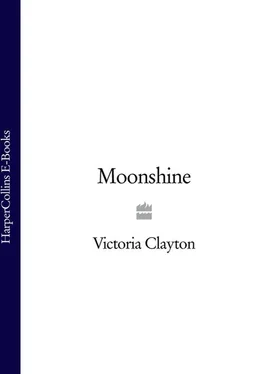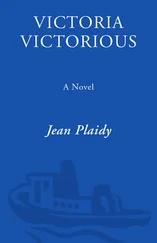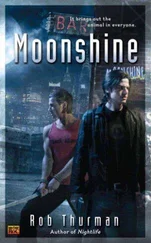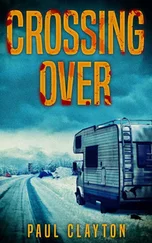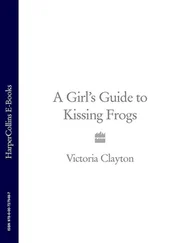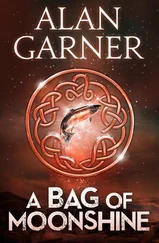‘As far as I’m concerned, nothing that was associated with you could be squalid.’
‘That’s the kindest thing anyone’s ever said to me.’
‘I mean it. Don’t cry, Bobbie. You don’t want to mess up your face when you’re about to meet these new people. Tell me about the journalist who found you this Irish job.’
‘What a knight errant you are!’ I sniffed. ‘Fancy a man understanding the importance of mascara. All right, where was I? I remember, mixing Bengers for my mother with tears running down my face. Eating coffee fondants.’
‘Go on.’
I wondered as I stirred and chewed and wept if I could outdo my mother in misery now. I might as well join the library myself and put in a regular order on my own behalf at the sweet shop.
Since the arrival of droves of reporters we had locked all the external doors and closed the shutters of the downstairs rooms. Brough had removed the pull from the bell and we had unplugged the telephone. My father complained bitterly about being compelled to live under a pall of darkness and was absent from breakfast until after dinner. Fortunately the morning room was always so gloomy and my mother’s concentration on the written word so complete that she hardly noticed. Oliver was asleep during most of the day anyway so it made no difference to him. The only person who was actually having a good time as a result of my persecution by the Fourth Estate was Brough. He had never ceased to regret the end of the Second World War and was now in his element. He patrolled the grounds night and day with his shotgun, an expression of manic ferocity animating his usually sullen features.
Entombed in a dismal silence that was broken only by foolhardy reporters hammering on the windows and doors and rattling the letterbox until routed by Brough, I thought I might well be going mad. My sole outlook on the world was through one of the kitchen windows which opened on to the woodshed, coal bunker and dustbin area. It seemed safe to leave this window unshuttered.
The coffee fondant was actually rather disgusting but I found my hand reaching automatically towards the bag for another when someone sprang up in front of me on the other side of the window. I yelled with shock and was about to turn and run when something familiar about her made me pause.
‘Bobbie! It’s me! Harriet Byng!’ said the girl, putting her face close to the glass.
I undid the bolts of the back door. ‘Quick! Come in!’
Harriet squealed as she saw Brough advancing, squinting down the barrel of his gun, his eyes inflamed with killer fury. After I had persuaded him to go and have a cup of tea and a biscuit to calm himself, I closed and rebolted the door and then examined my unexpected visitor.
I had met Harriet Byng at the wedding of her elder sister. Ophelia and I had been friends for some years. We had never been particularly close but we moved in the same circles in London and we liked the same kind of things. Ophelia was beautiful with huge blue eyes and silvery-blonde hair and had exquisite taste. I found her particular brand of hedonism and extreme single-mindedness intriguing. She could be entertaining or appallingly difficult but she was never dull. Other people complained that Ophelia was selfish and heartless but they had been proved wrong when she had succumbed to the charms of a good-looking but comparatively poor police inspector. I had been asked to the wedding a month ago and there met Harriet, one of Ophelia’s three younger sisters. Harriet and I had had a long and interesting conversation about – among other things – the ideal lunatic asylum, the novels of Louise de Vilmorin and our favourite things to eat.
Harriet was quite unlike Ophelia, in looks as well as character. Her hair was long and straight and a rich dark brown. Her eyes were dark too and bright with intelligence. Her skin was pale and it was fascinating to watch the colour in her face come and go for Harriet was shy and blushed like a child. I thought her beauty bewitching, of a different order from anyone else’s. Her ingenuous sweetness was not the least of her attractions and I was amused to observe that a tall, distinguished-looking older man had her under his eye most of the time. This turned out to be Rupert Wolvespurges, the artistic director of the English Opera House, and Harriet confided that they were in love.
‘Oh, Bobbie!’ Harriet hugged me tightly. ‘How are you, you poor dear thing?’
These were the first words of sympathy that had been addressed to me since the scandalized world had been apprised of my affair with Burgo and they reduced me to a storm of sobbing. Harriet steered me to a chair and put on the kettle, then sat down next to me, holding my hand in hers until I had got over the worst.
‘Gosh, I’m sorry,’ I said. ‘I don’t suppose you’ve got a hanky? Mine are all upstairs.’
Harriet hadn’t so I used the drying-up cloth which was anyway a more suitable size for the deluge that had been provoked by the sound of a friendly voice.
‘It’s all too silly,’ I said. ‘I don’t know why I’m being such a baby.’
‘I do,’ said Harriet. ‘It’s really terrifying having those people harrying you, like hounds after a poor darling fox. You get the feeling they’re going to rip you to pieces if they catch you. And they make up the most ridiculous stories about you and suddenly you find yourself wondering if they might be true. You get frightened that any minute you’re going to go raving mad. After a while, though, you get used to it.’ I remembered then that Harriet’s father had only the year before been arrested for murder – wrongly, as it turned out. But for weeks stories and photographs of Harriet’s remarkably handsome and interesting family had filled the gossip columns and one could scarcely pick up a magazine or newspaper without seeing one or all of their faces as they went into the fishmonger’s or came out of a cinema. ‘Honestly, though it’s hard to believe, the reporters doorstepped us for so long that we actually got quite friendly with them. Some of them are perfectly nice people. It just takes a bit of getting used to.’
‘I’m sure you’re right. I’ve got to pull myself together. I haven’t been sleeping and … It must have been so much worse for you with your father in prison.’
‘That was truly awful.’ Harriet shook her head as she thought about it, as though to rid herself of the memory. ‘But, darling Bobbie, never mind the press for a minute. You can keep them outside and in the end they’ll get fed up and it’ll be yesterday’s news. But what about you? Have you been able to see him?’
‘No. If you mean Burgo.’
She squeezed my hand. ‘You love him terribly?’
‘Yes. Yes, I do.’
‘And will he … is he going to leave his wife?’
‘If he leaves her he’s finished as a politician. Margot Holland can’t have a disgraced minister in tow. As the first woman Prime Minister she’s got to have higher standards, work harder and do everything much better than any man. She supports Burgo all the way, naturally: she wouldn’t have appointed him Minister for Culture if she didn’t think he’d do a brilliant job. He’s only thirty-five and she’s promoted him over the heads of several older and more likely candidates. Of course it’s made him enemies.’
‘People are envious of him, you mean?’
‘Well, on the face of it he seems to have everything: brains, career, rich wife, willing mistress. The anti-Burgo faction is also largely anti-Holland, though that’s more or less kept under wraps, of course. The scandal’s given ammunition to those Conservatives who feel their manhood’s threatened by having a female boss. As well as to the Labour Party, of course. The only chance Burgo’s got of holding out against those who are baying for his blood is to be repentant and to persuade his wife to put on a public show of reconciliation with him. After that it depends on the tide of popular opinion. But plenty of politicians have had affairs and survived, provided they showed proper contrition and behaved themselves ever after.’
Читать дальше
